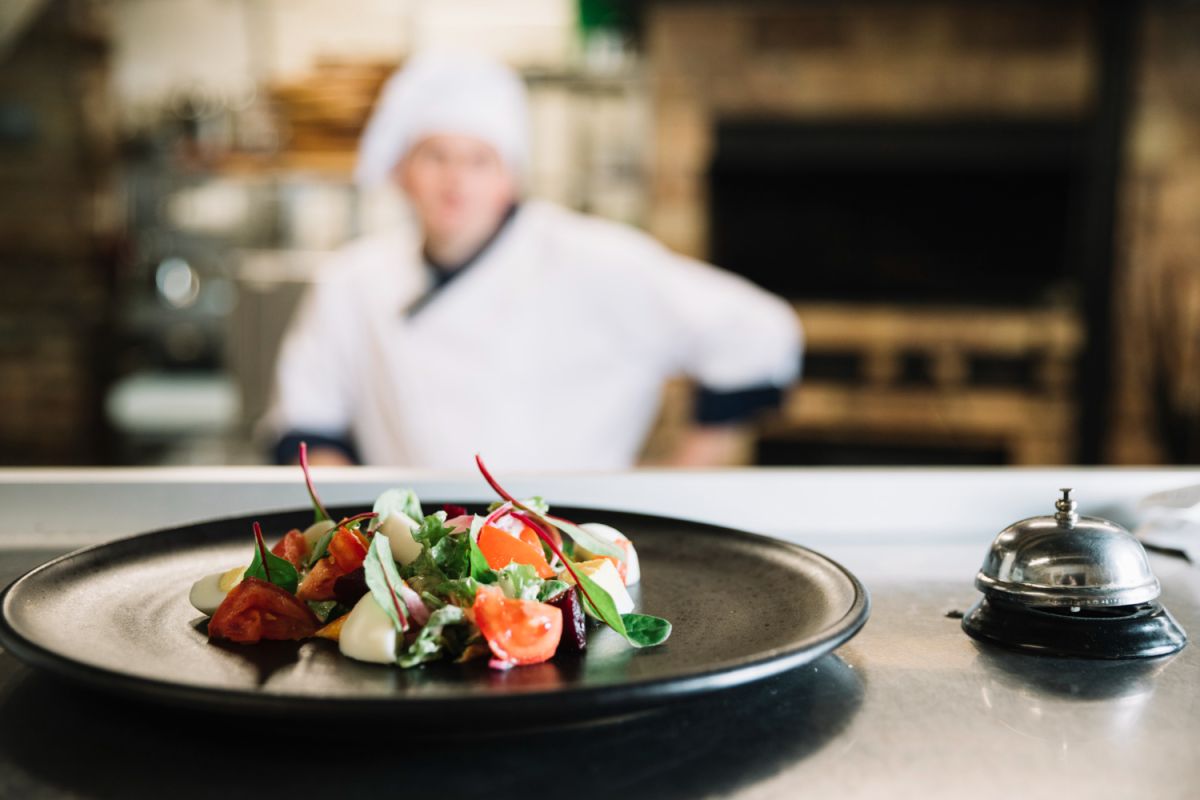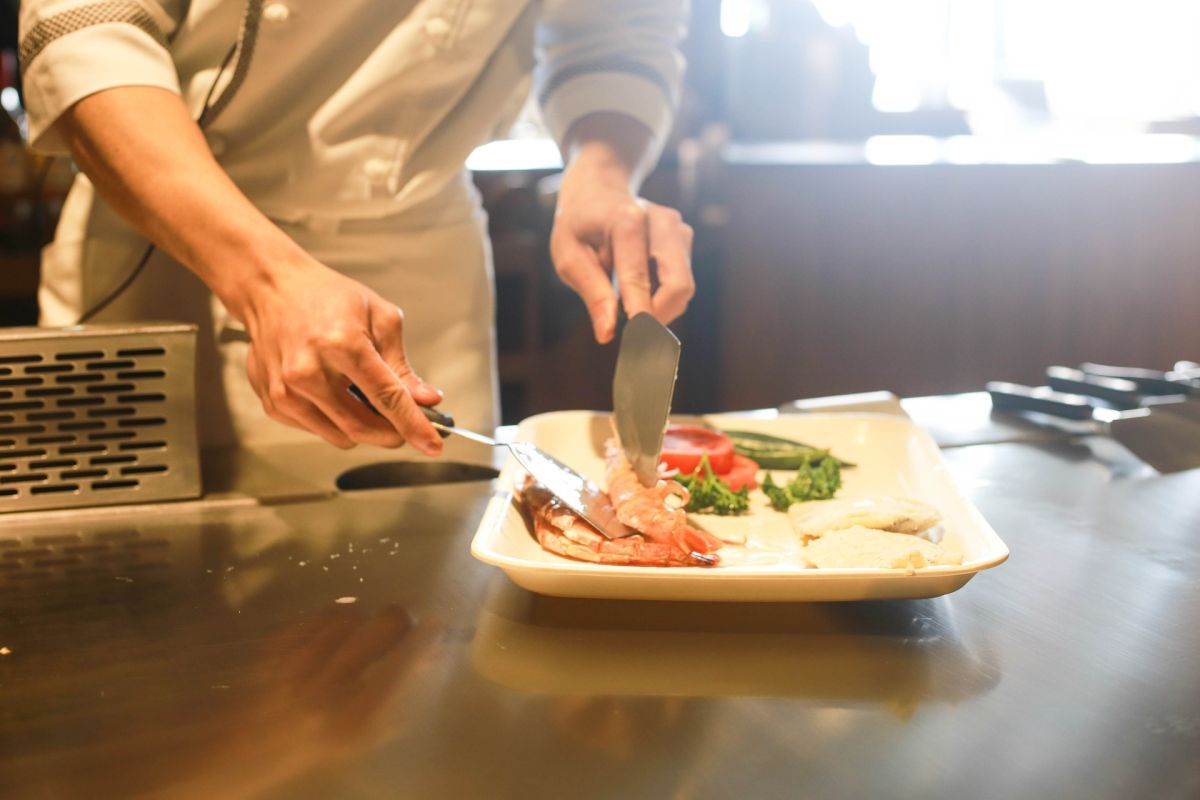Vacuum packing and more - freshness and hygiene in professional catering

Freshness and hygiene have always been of the utmost importance in the culinary world. Professional chefs and restaurateurs are faced with the challenge of preparing high-quality, unadulterated food while adhering to strict hygiene regulations. Vacuum sealers are one solution that has proven its worth in the catering industry.
In this article, we will look at how best to ensure freshness and hygiene in professional catering and what measures can play a crucial role in this.
Vacuum sealers - the secret of freshness
Vacuum sealers have long since become an indispensable tool in professional catering. They enable food to be sealed airtight, protecting it from external influences such as oxygen and germs. This significantly extends the shelf life of food and preserves its freshness.
By removing the air from the packaging, unwanted microorganisms that can cause spoilage are also eliminated. The result is a longer food shelf life without the need to add preservatives or chemicals. By using a vacuum sealer from suppliers such as Gastprodo not only makes cooking more hygienic, but also more natural.
The advantages of vacuum packaging
Vacuum packaging offers numerous advantages for the food service industry. They help to reduce food waste by extending shelf life and preserving the quality of the food. Chefs can prepare food in advance without fear of spoilage. This saves time and facilitates organization in the kitchen.
Another key advantage is that vacuum packaging preserves the taste and aromas of the food. The absence of oxygen prevents oxidation, which often leads to loss of flavor. This enables chefs to serve authentic and high-quality dishes.
Applications for vacuum sealers in the catering industry
There are a wide range of applications for vacuum sealers in professional catering. We would like to present a few examples in this section:
Sous-vide cooking
The sous-vide method is very popular in the catering industry. Vacuum-packed food is cooked at low temperatures over a longer period of time. This leads to tender and juicy results, as the flavours and juices are locked in.
Preparation of ingredients
Preparation of ingredients
Many ingredients such as herbs spices and sauces can be prepared in advance and vacuum-packed. This saves time and ensures that the ingredients stay fresh until they are needed.
Food storage
Leftovers and surplus food can be vacuum packed and stored for later use without losing quality. This minimizes waste and saves money.

The importance of hygiene
A lack of hygiene can not only lead to health problems for guests, but can also significantly damage a restaurant's reputation. It is therefore absolutely essential for any catering business to establish a strict and comprehensive hygiene strategy, ranging from staff training to regular cleaning of all surfaces and equipment.
Clean surfaces and equipment
Regular cleaning of surfaces and kitchen equipment is essential. Contamination can encourage the spread of bacteria and germs. Therefore, chefs and kitchen staff should ensure a clean environment.
Clean surfaces and equipment
Regular cleaning of surfaces and kitchen equipment is essential. Contamination can encourage the spread of bacteria and germs. Therefore, chefs and kitchen staff should ensure a clean environment.
Hand hygiene
Clean hands are a fundamental element of hygiene in the catering industry. Thorough washing before and after preparing food and wearing disposable gloves are good practices to prevent the transmission of pathogens. Care should be taken to ensure that all kitchen staff are regularly made aware of the dangers of poor hygiene.
Food safety
Safe food storage is another fundamental aspect of a hygienic kitchen environment. Raw meat and fresh fish should always be stored separately from other foods to avoid cross-contamination. Compliance with expiry dates and temperature monitoring are also crucial.
The combination of freshness and hygiene
The best way to ensure freshness and hygiene in professional catering is to combine fresh-keeping methods such as vacuum packing with strict hygiene measures.
Vacuum-packed food not only has a longer shelf life, but is also protected from contamination. This makes it easier to comply with hygiene regulations and minimizes the risk of food-borne illnesses.
Qualified training
Staff training in hygiene is also essential. Employees should not only understand the importance of hygiene, but also learn the correct procedures for handling and preparing vacuum-packed food.
Careful storage
Vacuum-packed food should be stored carefully. It should be stored in clean and labeled containers to avoid confusion and ensure efficient organization in the kitchen.
The role of technology
Modern technology plays a crucial role in ensuring freshness and hygiene in the catering industry. In addition to vacuum sealers, there are a variety of appliances and systems that can help to achieve the highest standards in the kitchen.
Constant temperature monitoring
Tracking and monitoring temperatures in fridges and freezers ensures that food is stored in a safe area. Modern temperature monitoring systems can automatically trigger alarms if deviations occur.
Use of HACCP systems
HACCP (Hazard Analysis and Critical Control Points) is a concept for identifying and controlling hazards in food processing. It is based on preventative measures and can be made more efficient through the use of technology such as sensors and software.
Hygienic surfaces
Innovative materials that are easy to clean and antibacterial are increasingly being used in the food service industry. This minimizes the risk of cross-contamination and makes it easier to comply with hygiene regulations.
Conclusion: More hygiene and freshness in the food service industry
Freshness and hygiene are cornerstones of professional catering. Vacuum sealers and modern technology offer efficient means of ensuring these standards. By combining fresh-keeping methods with strict hygiene measures, chefs and restaurateurs can serve high-quality food that is not only delicious but also safe.
We live in an age where customers are increasingly looking for quality and therefore freshness and hygiene. Many of the measures presented are essential to ensure the success of a restaurant and win the trust of guests day after day.